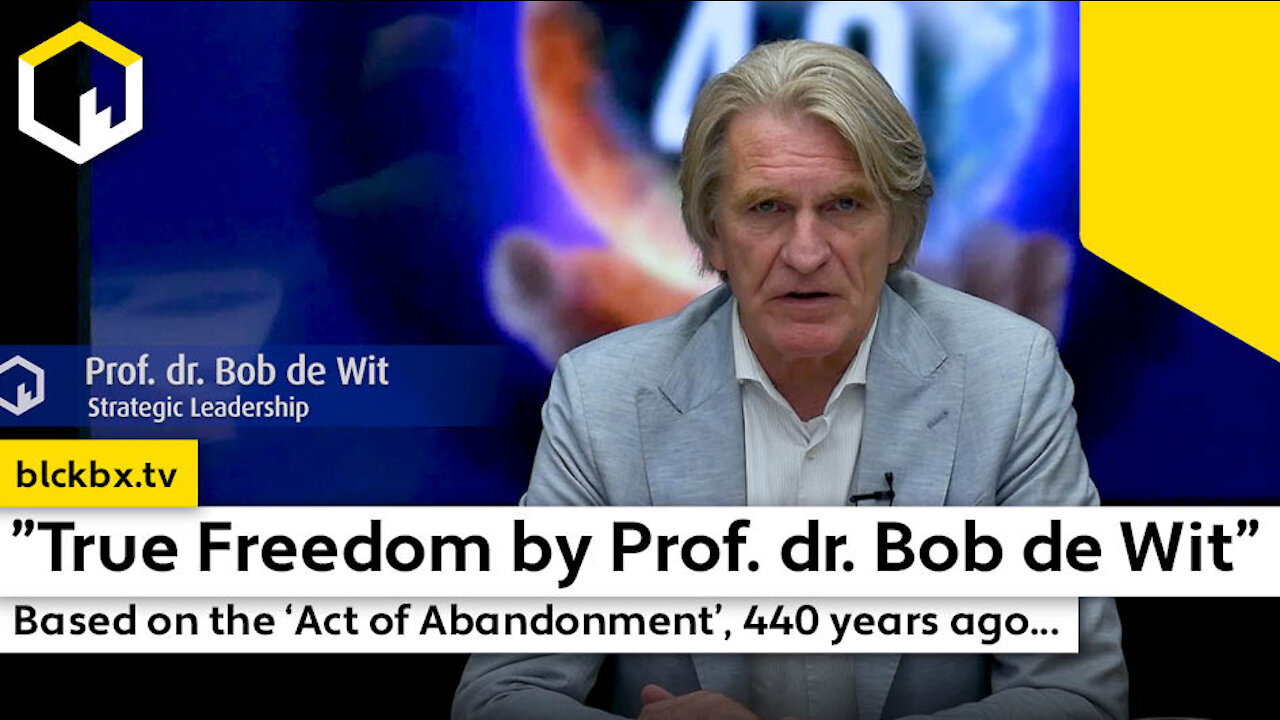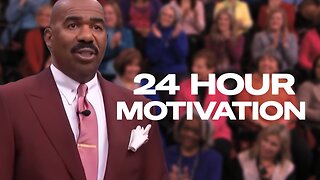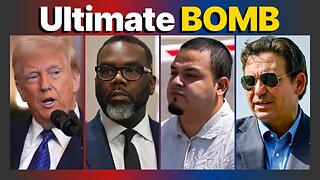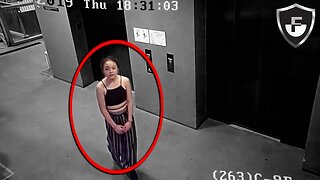Premium Only Content

True Freedom by Prof. dr. Bob de Wit
True Freedom – Bob de Wit
It is time to start celebrating freedom – to celebrate that we act and behave without being forced. Freedom is not obvious, and historically freedom is even very rare. It is important to realize that the freedom we have known for 75 years is the big exemption on the historic rule. You only understand the importance of freedom when there is not. Or if freedom is not there anymore. People who have lived in unfreedom know this all too well.
I love freedom. The freedom to talk with everyone, to have opinions, to enjoy conversations, to move around. The freedom to enjoy the sun, wind, the view, and each other. Indeed, to enjoy life itself!
Freedom is not obvious. Our ancestors have been fighting for freedom, many times even. Most recently in the Second World War. We all know that. But also much earlier and much more often.
Freedom is not without obligations. Freedom also means that you confer freedom to others. So: connected freedom. Freedom must be for everyone, it is about OUR freedom. Freedom requires to take responsibility as a human being and the discipline to hold you to it. Not because you are forced to, but of your own free will.
Freedom can be celebrated, yes it even must be celebrated. We must celebrate freedom to remind us how precious freedom is, and how grateful and happy we must be that our ancestors have fought for our freedom in the past.
This year it was 440 years ago that people chose for freedom for the first time. On 26 July 1581 the Dutch people signed the ‘Act of Abandonment’, in which they declared seven provinces of The Netherlands independent from the Spanish King Philips II. The Dutch citizens chose to no longer acknowledge Philips II as their King.
The following text in the ‘Act of Abandonment’ is interesting:
‘A monarch is appointed by God, but he may be deposed if he oppresses his subjects. A monarch must protect his subjects and may not require them to be submissive and to serve as slaves. The people conclude a contract with the monarch, in which the rights of the subjects are established’.
This Act officially rejected the authority of the monarch for the first time, arguing that people have the right to revolt when a monarch does not fulfil his duties to his people and behaves like a tyrant. This argument has also been used in declarations of independence in other countries, such as the United States Declaration of Independence of 1776, which reproduced parts of text, including the principle that citizens have the right to leave their monarch if he does not respect the laws and freedoms of the citizens.
The States General of the Netherlands declared that their Spanish monarch Philip II had violated these freedoms and rights and declared him abdicated. His throne was declared deserted: the Abandonment. In practice, the Act of Abandonment was a declaration of independence. Six years later it was decided to become a Republic and to continue as the Republic of the Seven United Netherlands. In 1588 this became a fact. The Act of Abandonment is seen as the foundation of the Netherlands.
In short: The Netherlands was created because citizens chose for freedom. However, not everyone was convinced of the correctness of the independence. Because while many saw the Act of Abandonment as the beginning of freedom for citizens, the ruling elite thought it was not only 'incorrect' and against their interests, they also thought it was unrealistic. Famous is the statement of the elite about the transition of the Netherlands to a republic (documented by historian Charles Wilson): 'How can a bunch of traders, fishermen and merchants think that they can run a country without noble leadership?’ The elite were among the very last who could imagine and accept the possibility of the new form of society. In retrospect, this turned out to be the beginning of freedom in what the Dutch call the Golden Age, the period in which the Republic of the Seven United Netherlands became the richest and most powerful country in the world.
The two different perspectives on the right form of government – Elite Society versus Civil Society – always persisted, mostly dormant but sometimes very prominent. In the past, this led to sharp political debates and impressive speeches.
A very prominent speech is the 'Manifesto of True Freedom' from 1654. It was drawn up by one of the most important leaders The Netherlands has known, Johan de Witt. Johan de Witt was the country’s Grand Pensionary, which is currently named the President. Nice name by the way. And of course I mean his first name Johan. The Manifesto of True Freedom discussed the lack of freedom of citizens as long as monarchs – the elite at the time – are in power. Take this quote from the 'Manifesto of True Freedom', and pay special attention to the similarities with now:
“The elite often have their own interests that differ from the interests of citizens, and sometimes go against the public interest. Because they always have a large group of followers and a lot of influence on the government, it is inevitable that they try to promote their own interests through the government. The regents, who strive for the general interest and the prosperity of the people above everything else, are then forced by their conscience to demonstrate against this as strongly as possible, and to set aside their respect to the elite. And see: then there immediately arises conflict. On the one hand, the elite who do not want to bow because their respect and interests are at stake, and on the other hand the regents who lean on their conscience as if on an impenetrable line of defense and cannot deviate from their opinion. Then there is a dangerous rift in society."
End of quote.
It is a timeless deduction about the struggle between on the one hand the elite – then the princes and nobles –, and the representatives of the people – then the regents on the other. Even today we are faced with this contradiction. Can our fragile democracy withstand the power and money of non-democratic global players such as the United Nations, World Health Organisation, World Economic Forum, Big Tech, Big Finance and Big Pharma? Doesn't the self-interest of this undemocratic elite again clash with the general interest of the citizens? For example, how do you view the enormous censorship of Big Tech and the 'sick' and ‘sick-making’ propaganda of Big Pharma?
A second quote:
"If the monarch has a violent character, or is influenced by violent advisers, this immediately leads to the greatest extremes."
In 1672, 18 years after the Manifesto of True Freedom, Johan de Witt and his brother Cornelis were brutally murdered by followers of the elite, a murder that can safely be called an extremity. And in 1806 The Netherlands were no longer a Republic but a Monarchy.
Even now we cannot exclude the largest extremities if there is someone with a violent character within the current undemocratic elite. Human DNA hasn't changed much since the murder of the De Witt brothers 350 years ago. After all, we experienced that 75 years ago in the second World War, didn’t we?
Johan de Witt spoke out in favour of what he called True Freedom. And now we must again speak out for True Freedom. But times have changed, and we will have to redefine what we mean by True Freedom.
Not everyone realizes what time we live in. There are still people who believe that we are in a health crisis and not a societal crisis. That could be because of naivety, as the result of the fear campaign, or simply because they can not imagine that our governments are just puppets of the new world elite. I wouldn't swap with them. Would you? Be glad you understand, and don't get mad at them. Sooner or later, everyone realizes that we find ourselves again in the age-old struggle between an elite society governed by control, fear and coercion, and a society of citizens based on freedom, happiness and hope. And at that moment we have to be able to connect again. Forgive them, give them a helping hand, then we can later build a better world together. Then together we leave the new world elite's attempt at slavery through control, fear, and coercion. And then we will once again show the world the way to freedom.
Building a better society has already begun. My new book ‘Society 4.0: Resolving eight key issues to build a citizens society’ has inspired many to start building a better society, and we are working on that together. Freedom is at the heart of Society 4.0. It's about the freedom to be yourself and to say what you think. Freedom to develop initiatives. Freedom with respect for people and nature. Freedom as an individual and freedom as a society.
I come to the ending.
A new society always starts at a certain time. July 26, 2021, 440 years after signing the Act of Abandonment, the first time citizens chose freedom, seems to me a beautiful moment. Let’s celebrate the Festival of Freedom from now on. The beginning of a new tradition.
Will you note 26 July 2022, 23, 24 and 25 in your agenda? We will then celebrate True Freedom.
Thank you!
-
 LIVE
LIVE
Lofi Girl
2 years agoSynthwave Radio 🌌 - beats to chill/game to
414 watching -
 LIVE
LIVE
The Official Steve Harvey
12 days ago $4.96 earned24 HOURS OF MOTIVATION w/ STEVE HARVEY
771 watching -
 25:56
25:56
DeVory Darkins
18 hours ago $0.38 earnedTrump drops ULTIMATE BOMB on Democrat Mayors as ICE makes SHOCKING Announcement
24.4K122 -

TonYGaMinG
3 hours ago🟢 ABI WITH FRIENDS | 🍩JOE DONUTS | 😶 🌫 VLADSGAMINGCARTEL |
11.8K -
 21:24
21:24
marcushouse
10 hours ago $0.06 earnedStarship Flight 10: Go or No? 🚀
14.3K10 -
 LIVE
LIVE
MrR4ger
15 hours agoSUNDAY FUNDAY w/ R4GER - VARIETY / DIABLO 4/ FOR HONOR / ETC?
98 watching -
 5:40
5:40
WhaddoYouMeme
3 days ago $0.19 earnedThey’re Calling This the End of Masculinity
18K14 -
 15:24
15:24
Tactical Advisor
18 hours agoBest 2011 of 2025 | Bul Armory Ultralight Pro
21.8K -
 27:31
27:31
True Crime | Unsolved Cases | Mysterious Stories
2 days ago $0.11 earnedThe Hong Kong Schoolgirl Mystery – 5 Mysterious Unsolved Cases (Part 8)
17.1K2 -
 7:19
7:19
China Uncensored
1 day agoChina is DONE in the South China Sea
14.4K26